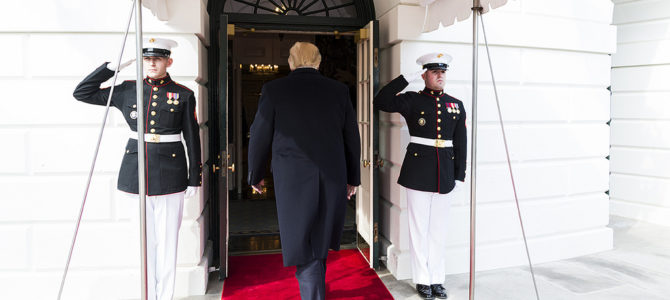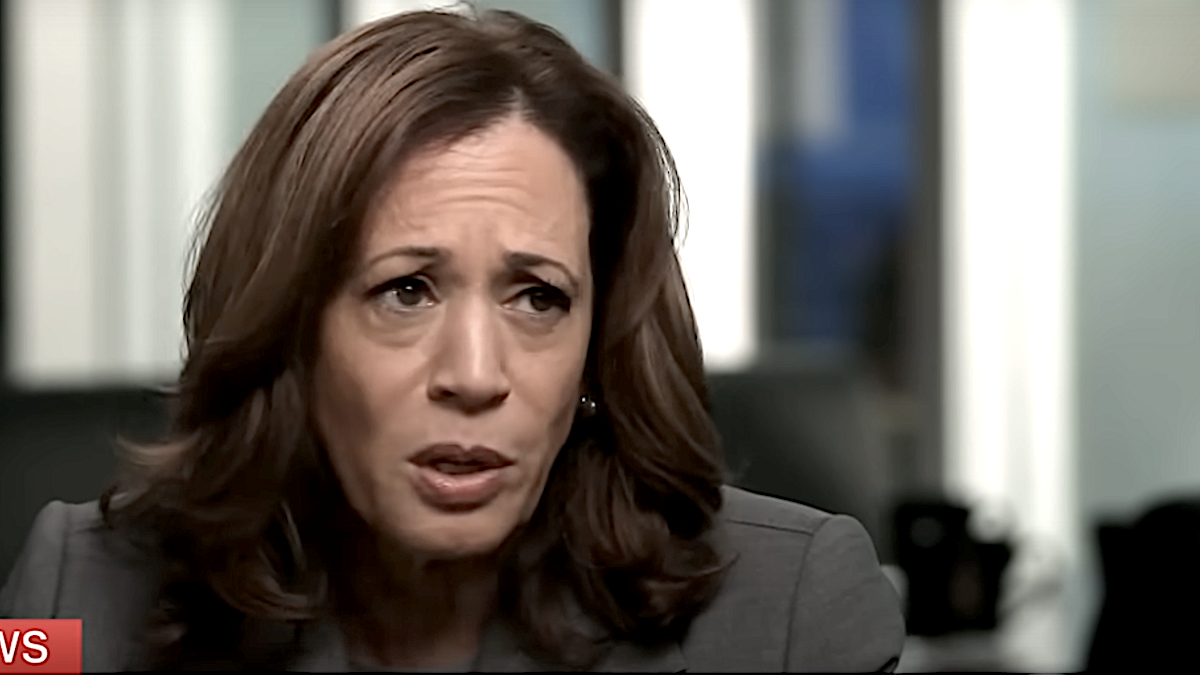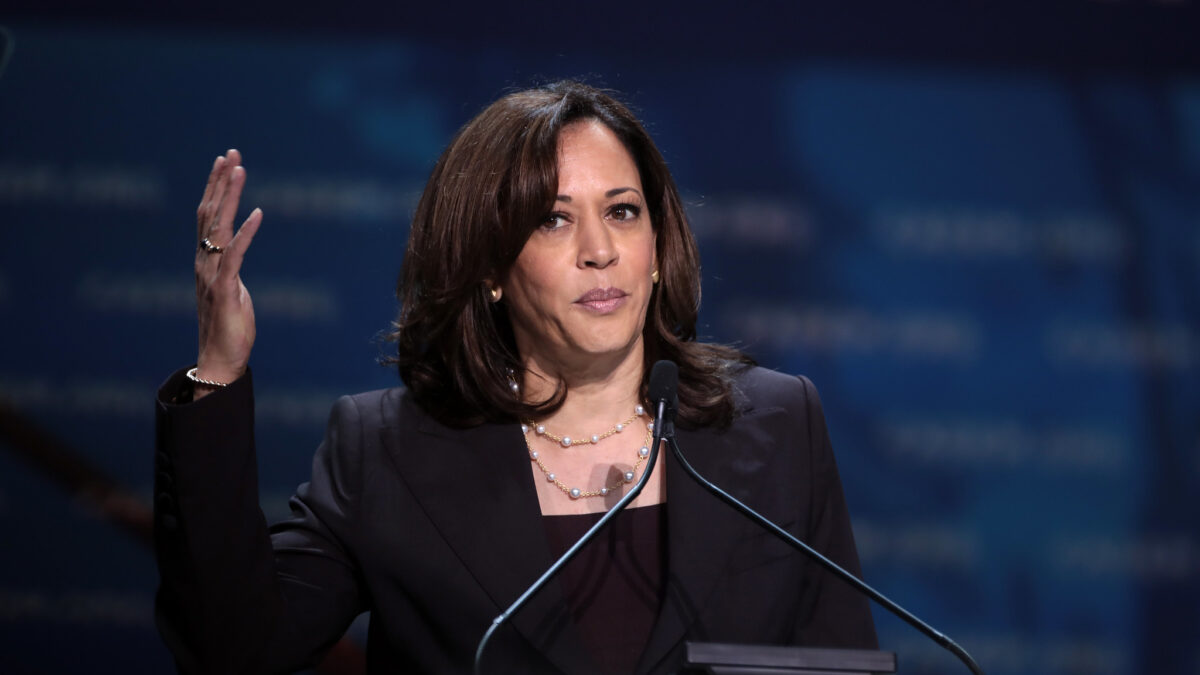
Rebecca Solnit’s essay “The Loneliness of Donald Trump” spread far and wide on the Internet last week. As an attack on the president’s personality, portraying him as an isolated and frustrated narcissist, it was an effective piece of rhetoric. Its target audience was the Left, but many on the Right also thought Solnit’s analysis rang true.
Describing Trump and his flaws, though, she really highlights the great flaw of the American presidency as it becomes ever more monarchical. Trump is an unusually strong example of the trend, but he did not invent the imperial presidency. This illness has been building for more than 100 years. Trump is just the latest symptom.
It Never Stops Growing
Our government, especially its executive branch, is insatiable. If it merely grew up with the country, expanding as America expanded, then we could look on the growth with less trepidation. But the executive branch—and with it executive power—expands at a rate that outpaces the geographic or population growth of the country.
Since the New Deal, this growth has been almost constant, despite many well-intentioned efforts to roll it back. In growing, it has crowded out other healthy parts of society that used to do things we now see as the government’s job. Americans cannot afford a massive welfare state, a strong military, and still have enough left over for a robust private charity system. Government spending has mutated and consumed all before it. That’s not healthy growth. It’s metastasis.
It’s a bipartisan problem. The last president to cut spending was Harry Truman, and most of those gains were just a result of demobilizing from World War II during his first years in the job. The full term he won from 1949 to 1953 actually saw a 97 percent increase in federal outlays over 1948 levels, and would have been higher if he’d had his way. (Dividing history into presidencies is itself evidence of the exalted way we view the office, but that is how these things are usually discussed.)
The last real budget-cutter was Calvin Coolidge, who oversaw a 6 percent decline in federal spending over his six years in office. Since then, it has been nearly nonstop growth.
The Machine Runs Itself
The growth in government and its consequent crowding-out of private efforts would be bad enough. But how the spending is used has even deeper effects on us and our government. With money comes power, and when that money goes to the federal government, the power goes with it, all centralized in Washington under the control of one man. Before the twentieth century, a peacetime president was an exalted clerk. Congress wrote the laws and spent the money; the president just followed their dictates and appointed ambassadors and postmasters.
One person can do that job reasonably well. Even in wartime, when a president’s powers are more pronounced, a capable chief executive could handle that job. Since the Progressive Era, however (and even more so since the New Deal), the president is placed at the head of an ever-expanding federal bureaucracy. The rise of the administrative state means that bureaucracy has taken onto itself some of the functions of the other branches. Regulations, never subject to a legislative vote, replace traditional laws. Administrative rulings replace those by the independent judiciary.
All of those actions require policy judgments. That almost immediately produced an unaccountable bureaucracy. No president, even one who stayed away from the golf course and worked 18-hour days, could manage such an unwieldy apparatus. Government control over the people’s lives increases but, perversely, government’s control over itself diminishes.
Conservatives were driven to distraction when President Obama claimed that he first heard about some government action when he saw it on the news. In some instances, he was obviously lying, but is it so implausible that in some cases it was true?
There are more than a million federal employees, not even counting all the federal contractors. Many of them make important decisions that will affect the lives of millions of Americans they have never met. How can we expect any one person to master such an enormous machine? The bureaucracy becomes unaccountable, and bad actions remain uncorrected unless they rise to the level of national news. Most never will.
The Isolation of Power
Someone given that much power with only the illusion of control, you would think, might feel the need to fix the system any way he can. But that presumes that the kind of person who seeks the presidency is susceptible to self-doubt. Even to run for president takes a sort of breathtaking arrogance. By the time he’s elected, people will have been telling him how great he is for years. To expect such a person to look inward and wonder whether he is right and whether the system works—well, it’s not likely to happen as often as it should.
The longer a president stays in office, moreover, the more his self-assessment will be skewed. A man with some level of humility—I believe George W. Bush is the last president to meet the definition—might assemble a team with diverse ideas to start his presidency. By the end of his term, however, few will remain who will openly disagree with their boss. After two terms? Almost none but sycophants will have the president’s ear. Consider Solnit’s description of Trump:
I have often run across men (and rarely, but not never, women) who have become so powerful in their lives that there is no one to tell them when they are cruel, wrong, foolish, absurd, repugnant. In the end there is no one else in their world, because when you are not willing to hear how others feel, what others need, when you do not care, you are not willing to acknowledge others’ existence. That’s how it’s lonely at the top. It is as if these petty tyrants live in a world without honest mirrors, without others, without gravity, and they are buffered from the consequences of their failures.
Could this not apply to any president in his seventh year of office? That Trump finds himself there after four months, not four years, is a difference of degree, not kind. Trump is the culmination of the imperial presidency and the centralizing trends of the past century. He is particularly flawed in personality, it is true, but that only makes the problem more apparent. In truth, it has been there for years.
In some ways, conservatives are more to blame than are liberals. Lefties have been the leaders in expanding government’s size and scope, but in elevating the presidency, the Right has a good share of the responsibility. It is a not-unnatural extension of conservatives’ love of country and tendency to respect authority.
Mankind’s natural craving for a good king and leader is easily transferred to a president, even though we should know better. When a Democrat is president, the Left will sometimes join in—remember how we were all supposed to “respect the office of the presidency” when Bill Clinton was wantonly besmirching it?—but usually their disrespect for authority is more befitting a free people.
Solnit compares Trump to the careless rich of “The Great Gatsby,” but being president is a level of isolation unlike that of even a Silicon Valley billionaire. There are private homes more ornate than the president’s palace on Pennsylvania Avenue, but none are more removed from normal society. Private jets? The president has Air Force One. Limousines? The president’s motorcade will shut down a whole highway. Bodyguards? He has an entire branch of law enforcement devoted to his protection. That’s not rich: it’s royal.
Remember, the President Works For Us
It is cliché, in a conservative publication, to say that the answer is federalism, but it is nonetheless true. Centralizing authority means elevating the center above the periphery, and at the periphery’s expense. The higher we make the president, the farther removed he is from the people, and from his own roots in whatever community he came from. That isolation amid incredible power makes for a president increasingly detached from the people he is meant to govern. The next president may be better than Trump in this respect, but over the long-term the trend will not improve unless power is returned to the states, communities, and individuals to which it belongs.
Besides reducing power, we should take a page from the Left’s book and reduce the reverence in which we hold the presidency. Respect for authority is well and good, but we should be wary of acting in a way that suggests the president is any more or less than the temporary steward of certain powers that he exercises on behalf of the people. He is not a king, saint, or demigod; he is just a person. We should respect him as much as we respect all human beings, since we all deserve dignity, but no more.
The imperial presidency is made as much in the minds of the masses as it is in the laws of the land. We must reduce his power in law, but also in how we perceive him. The Left’s lack of respect for Trump is healthy, but it would be more so if they had not spent eight years treating Barack Obama as an anointed king.
No matter who the president is, we must return to treating him as merely the first among equals, elevated for a short time to do a specific job, then to return to the people from which he came. That does not mean that we should indulge in rudeness or vulgarity toward him, any more than we should treat any person that way. But a little more of treating this president (and all presidents) as just a person would go a long way toward restoring sanity in the office.









